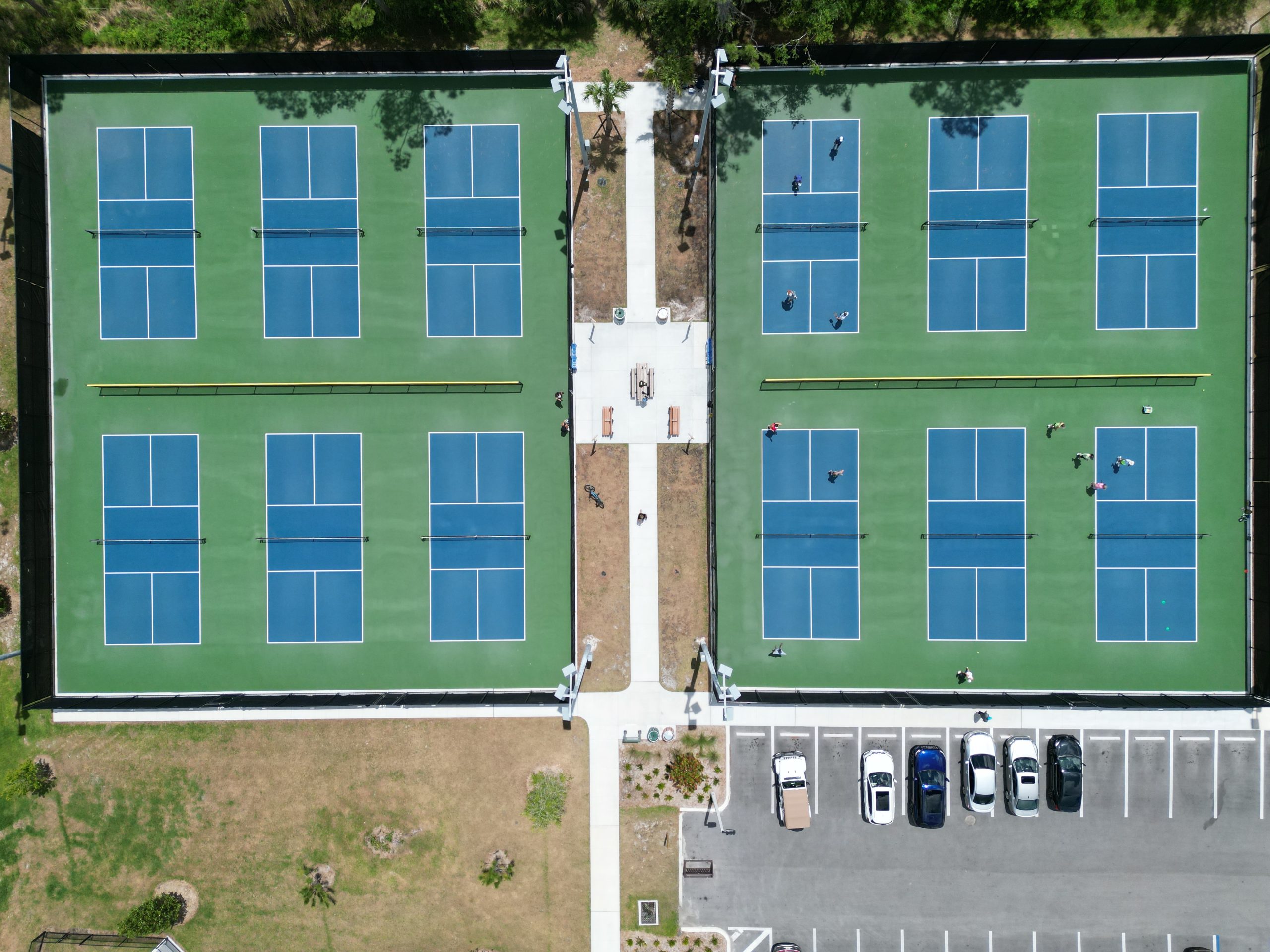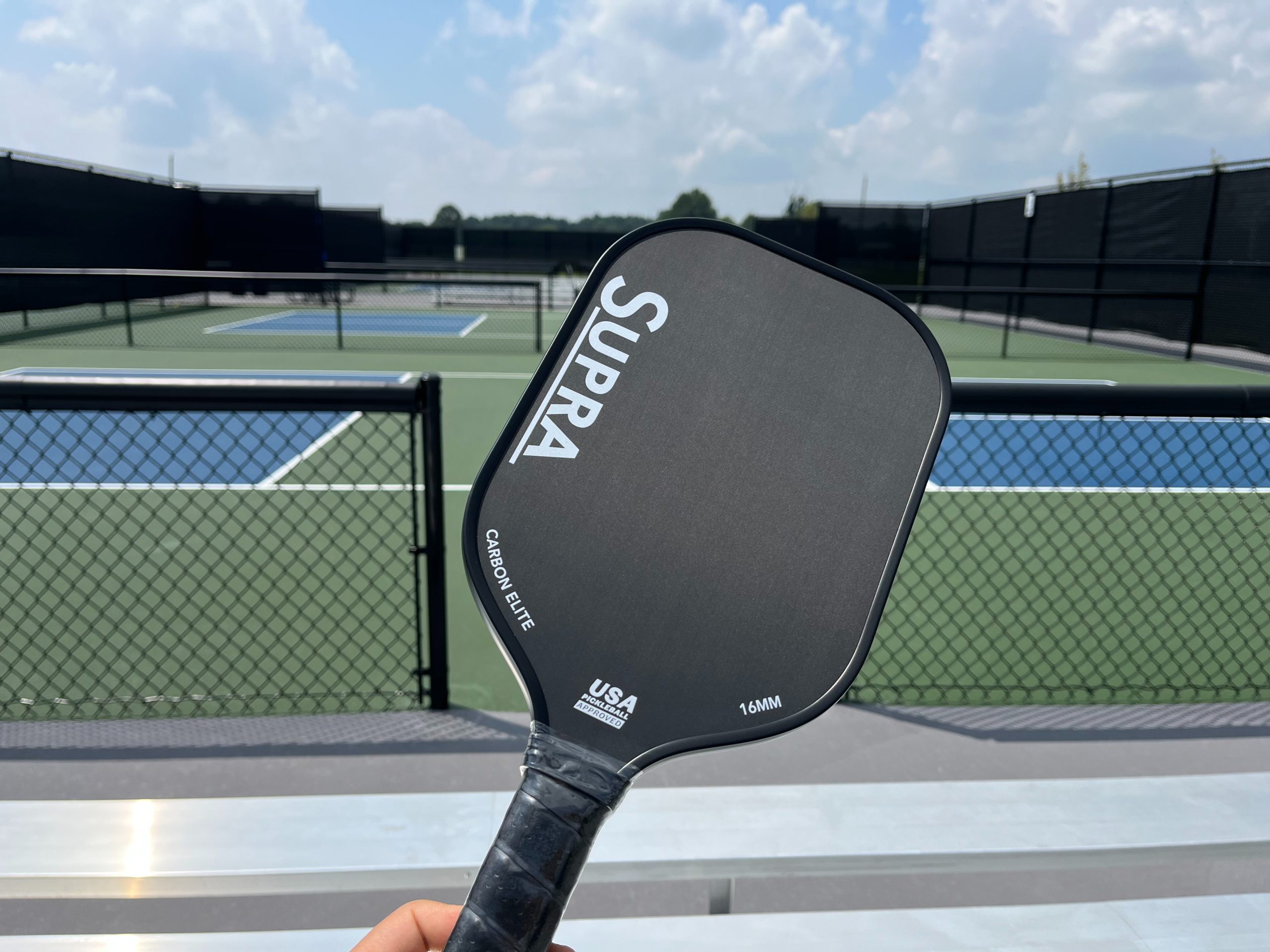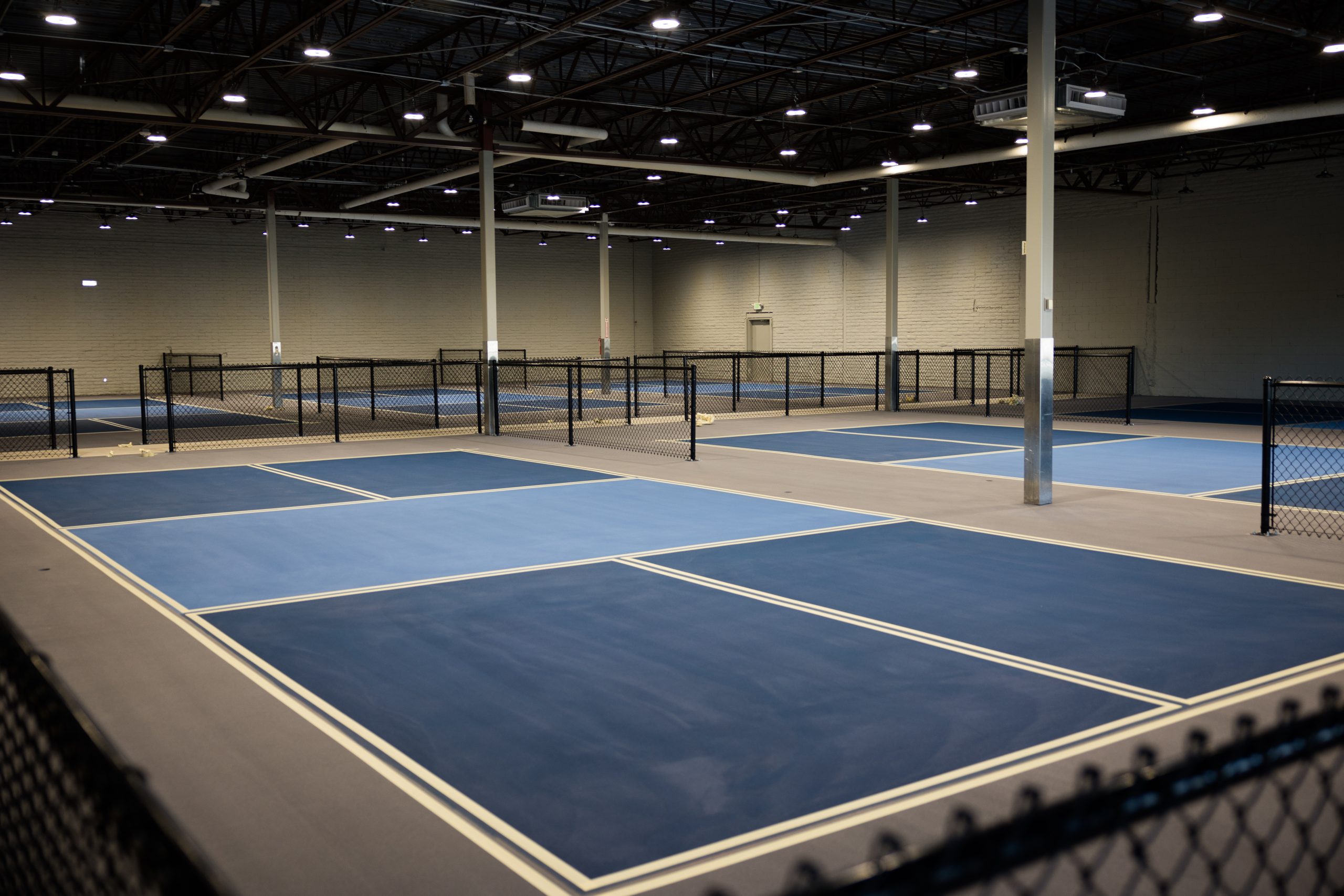Image courtesy of Ron Alvey via Adobe Stock
By
Unless you’ve been living under a rock for the past three years, you’ve probably heard about pickleball— or heard the pwock, pwock, pwock sounds echoing from a nearby court.
Pickleball is America’s fastest-growing sport, with 8.9 million people playing regularly in 2022 and another 27 million playing at least once last year. Enjoyed by players of all ages and skill levels, the popularity of the paddle sport, described as a cross between tennis and table tennis, has caused municipalities and HOAs to hurriedly accommodate this seemingly unquenchable demand for a decades-old sport that exploded into prominence during the height of the COVID-19 pandemic.
But simply converting unused tennis facilities or community spaces into pickleball playgrounds comes at a price. While the initial overhead is relatively cheap to draw lines and set up a few nets, not everyone is pleased with the latest craze, particularly its constant noise.
“Because of its growth, there’s been a huge gap in supply versus demand, so many parks and rec entities have exercised what they believe to be both their right and responsibility to serve the public and, in doing so, have been converting community parks and tennis courts that perhaps weren’t used before into pickleball courts,” said Carl Schmits, USA Pickleball Managing Director of Facilities Development and Equipment Standards. “The downside is that it could create an issue if it’s done without any expertise in an acoustic test or planning.”
“The way I would characterize this is we don’t have a noise problem, but we have a location problem. It’s not meant to be trite, but the real issue is that the sport’s growing so fast that parks and rec departments are scrambling to meet that demand.”

Image courtesy of Sarasota Guide via Unsplash
According to USA Pickleball, the sport’s governing body, which boasts more than 70,000 members, its Places2Play database has increased to 10,724 known locations throughout North America with 1,557 new locations added. Additionally, the total known courts stand at a whopping 44,094.
As pickleball continues to expand rapidly, creating enough available courts and opportunities to play may be the least of the sport’s worries. More and more people are complaining about the noise.
One Massachusetts resident referred to pickleball as “a machine gun with a never-ending barrel of ammunition tied to its gun.” Residents in a North Berkeley, California, apartment complex moved out due to the game’s unrelenting noise. A suburban Kansas City couple filed a lawsuit against an adjacent country club, claiming the “repetitive nuisance” woke them up at 6 a.m.
“USA Pickleball is very concerned about this,” said Bob Unetich, a retired engineer whose Pickleball Sound Mitigation LLC is working with USA Pickleball to address the problem. “No one should think they’re ignoring it. They are extremely concerned about this. This is giving pickleball a black eye. Lawsuits are bad for pickleball.”
So how do the sport’s governing body, various equipment manufacturers, and a multitude of municipalities work—ideally in unison—to accommodate the millions and millions yearning to play pickleball while being respectful of those who can’t tolerate its audible side effects?
Unfortunately, there isn’t a one-size-fits-all solution to the problem. Still, players and residents can rest assured that it is being addressed without compromising the integrity of the game.
Schmits noted USA Pickleball is working with various organizations, including Unetich’s Pickleball Sound Mitigation LLC, to conduct multiple acoustic studies on equipment and materials while implementing incentive programs to manufacturers to create quieter paddles, as well as offering assistance to communities striving to build pickleball facilities through relationships with the National Recreation and Park Association and Club Management Association of America.
“It’s super important to us,” Schmits said. “My role is to remove barriers to growth. I definitely see this as a barrier. Bringing in the right materials and equipment to those areas that need it is absolutely what we’re trying to do. We’re not going to broad brush the entire sport with, ‘Hey, you’ve all got to be quieter,’ because a small percentage of facilities have this problem, so we’re not going to burden every manufacturer with having to develop a quieter product. Those who want to are already on it. Some of the biggest names in racquet sports are working on paddles and balls to address the issue in addition to their regular product lines.”

Image courtesy of Laura Tang via Unsplash
Pickleball is a surprisingly loud sport. Aside from players communicating and celebrating successful shots, a plastic ball hitting a hard court or paddle, which can be made with a Nomex, aluminum, or polymer core, can register a decibel level of approximately 70 dBA from around 100 feet from the court. In comparison, tennis is closer to 40 dBA from the same distance. According to Unetich, the goal is to get the base level to 50 dBA or lower.
“Technology took us to the moon, so isn’t it going to make a paddle that’s half as loud? That alone will be a breakthrough,” he said. “I think a 10-decibel reduction in paddle loudness is achievable, but you have to put serious engineering into it.”
Even though the decibel level is comparable to a vacuum cleaner (75 dBA), the main problem is the pitch, which registers a frequency of approximately 1,200 Hz.
While many municipalities and manufacturers are being reactive in response to the sport’s growth, both Schmits and Unetich agree that a proactive approach can quell any potential noise issues. That means planning where courts will be located and, if they are near residential locations, what equipment or barriers can be implemented to lessen the noise.
Officials in Macon-Bibb County converted Tattnall Square Park, a former USTA tennis facility built in the 1970s, into a pickleball haven with 25 courts for residents in central Georgia. Surrounded by an elementary school, a university, a doctor’s office, and a performing arts center, the issue isn’t noise but availability.
As part of the county’s redevelopment project highlighted by converting the Macon Mall, officials are turning 80,000 square feet into a 32-court indoor pickleball facility, and it’s expected to be the world’s largest.

Image courtesy of Tyler via Adobe Stock
“The noise concern has been a major consideration in how we construct the indoor pickleball facility,” said Alex Morrison, Macon-Bibb County Assistant Manager of Economic Development and Executive Director of its Urban Development Authority. “We were very conscious of the fact that you take an 80,000-square-foot facility built for department stores that are built up, filled with clothes, etc., so noise doesn’t travel when that’s filled versus an empty room with block concrete floors.
“We’re building in acoustical ears, drywall in pods around courts, hanging different things to absorb sound, putting in carpet squares to absorb sound, and those sorts of things. We’re abating sound in a creative way in our facility itself.”
Not every municipality is as lucky though, so officials will have to ask themselves the question: Do we rush to build out or convert a facility to meet demand and deal with any potential noise problems if they arise, or do we address them beforehand, potentially losing out on providing opportunities for play (and potential revenue) in the meantime?
For Morrison, an avid pickleball player, the key to understanding any potential noise problem is simple.
“Once you pick up that paddle and you start playing, the sound that you might have thought was cacophony is harmony,” he said. “It’s something that is now a magical sound that unlocks something joyous in you. That’s what people need to see— that it’s okay for other people to have joy, and that’s what pickleball brings.”
Magazine
Playmaker Events
Connect with playmaker